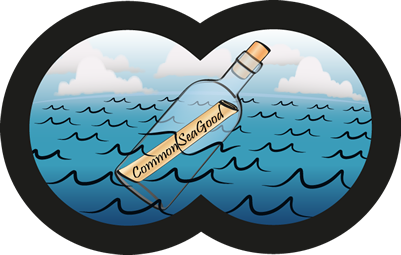Common
Sea Good
The better our aquaculture, the less we fish and let the oceans live !
Matthias Heilweck

About
Since ancient times, the seas have always been an abundant source of healthy food for us. This is about to change dramatically!
The industrialization of fishing has led to a drastic decline of the biomass of large high trophic level fish.
The global wild fishing production has stagnated and aquaculture was considered as the best alternative to wild fishing and became the fastest growing food-producing sector.
The other side of the coin, tough, is that marine proteins are needed, in quantity, to farm aquaculture species. For many reasons, terrestrial proteins cannot be the solution.
My project
It all comes down to the development of a huge and healthy marine protein source, able to take over from wild forage fish, small pelagic fish of low trophic levels, caught today to feed farmed fish.
The better our aquaculture, the less we fish and let the oceans live!
In the following, I will explain in detail,
Why it should be done,
How it can be achieved,
Where it can take place and
What sort of marine organism can be raised.
If you have the patience to follow my brainstorming step by step through to the end, I am confident that you will admit that it makes sense.
My vision
In my opinion, in a very near future, providing enough food for the whole humanity will become our main challenge. Food sufficiency for all is the first guarantee of peace.
The huge amounts of marine animal proteins that my project is likely to produce will be directed first towards small fish farms in developping countries. A part of it could be put at the disposal of the World Food Programme.
This production needs to be directly accountable to UNO in the framework of the Common Heritage of Humanity. The beginning of an universal income ?
My dream
This project is also a wonderfull stepping stone :
Cosmetics and medecines from marine sources benefit from the biological affinity between our blood and seawater. The pristine waters surrounding the facility constitute a very attractive environment to cultivate the appropriate organisms.
The carbon sink induced by the biomineralisation of shells, despite the scientific debate about it, could be easily upscaled as a massive carbon sequestration programme.
Dolphins, attracted by this oasis of live, could be educated to herd schools of targeted fish species towards prepared fishing nets around the facility. This to avoid today's fisheries' bycatch and stop their too large energy spending that makes them economically unsustainable without subsidies.
What you can do
I want to address myself to all sea lovers, even those who, by under-information, haven’t yet noticed that they should be.
Really, you need to cherish the sea, as it is our last chance to survive on this planet, to produce enough food for all of us and so to be able to live in peace.
So now, if you know anyone capable of putting a billion dollars on the table without any hope of a return on investment until the world’s population is nourished properly and the oceans have regained their biological balance, tell him about my idea. I am convinced that this project will be realized one day, because it simply makes too much sense.
